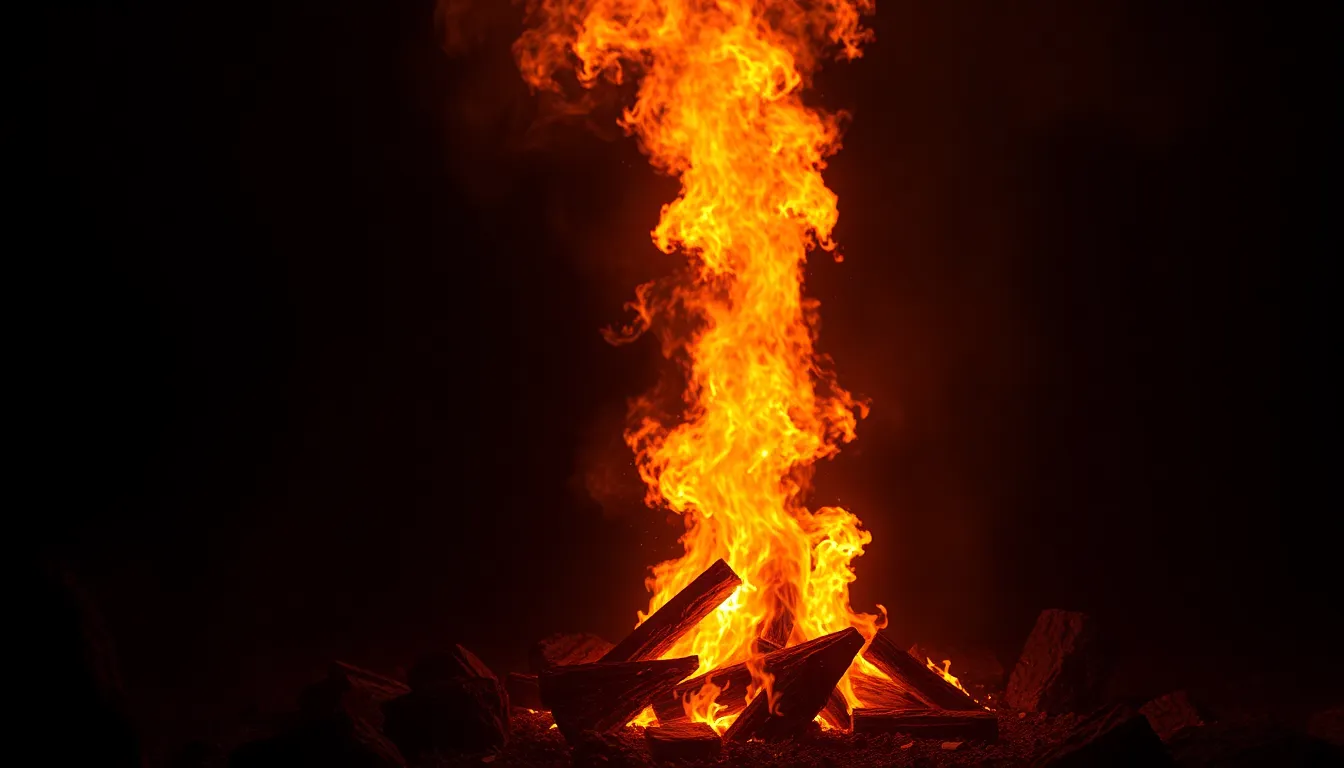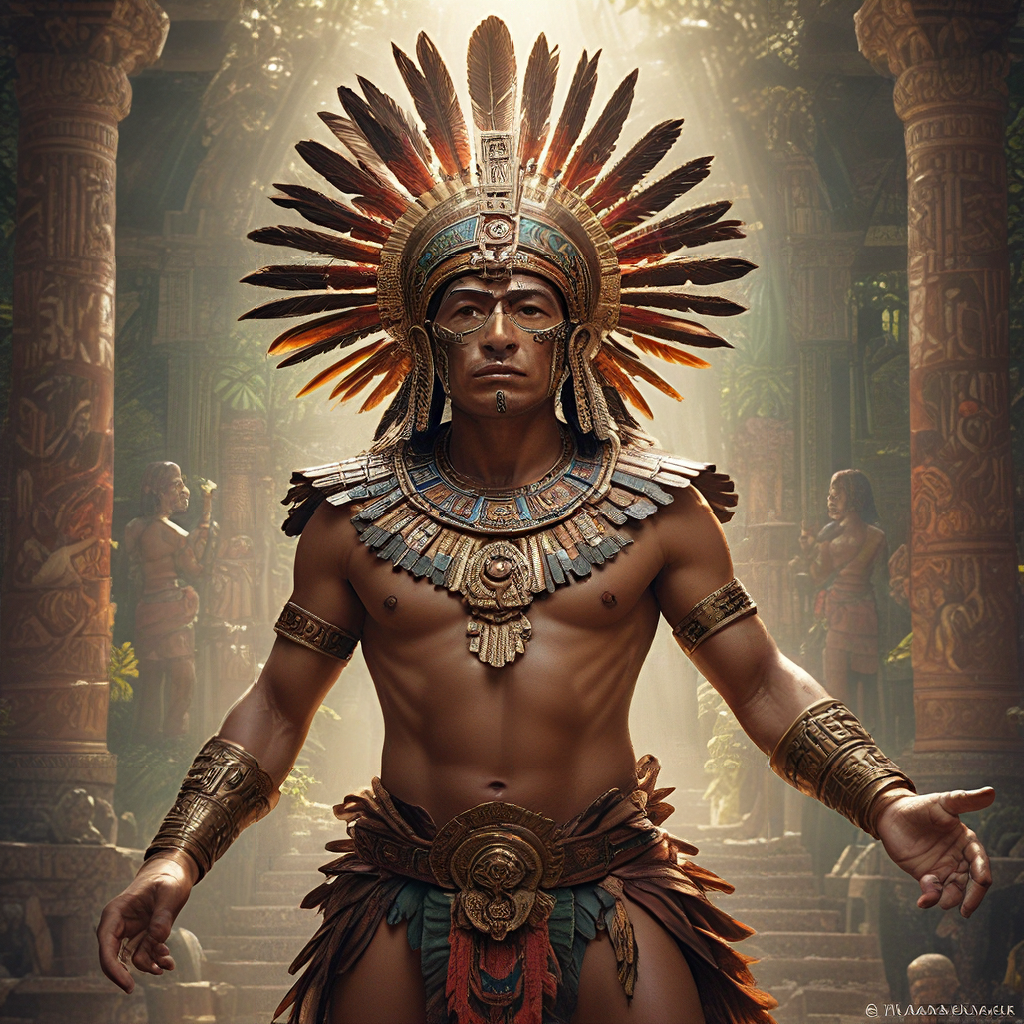The Mythical Fire: Flames of Sacred Significance
1. Introduction to Mythical Fire
Fire has held a significant place in human culture and mythology since time immemorial. Defined as a chemical reaction producing heat and light, fire transcends its physical properties, embodying a myriad of symbolic meanings across different cultures. In mythology, fire is often viewed as a sacred element, representing transformation, destruction, and rebirth. This article explores the multifaceted significance of fire in various mythologies, examining its historical perspectives, symbolism, rituals, and its role in creation myths, while also considering its modern interpretations and emotional impacts.
2. Historical Perspectives on Sacred Fire
Throughout history, fire has been revered by ancient civilizations for its life-sustaining properties and its mystical qualities. From the hearths of early human settlements to the grand temples of ancient cultures, fire has played a crucial role in religious and communal life.
- Egyptian Mythology: In ancient Egypt, fire was associated with the sun god Ra, symbolizing life and creation. The Egyptians used fire in various rituals to honor their gods and ensure the cycle of life continued.
- Greek Mythology: The Greeks worshipped fire through the figure of Prometheus, who stole fire from the gods to give it to humanity, representing enlightenment and knowledge, but also the potential for destruction.
- Hindu Mythology: In Hinduism, Agni, the fire god, serves as a vital link between humans and the divine. Fire is central to many Hindu rituals, symbolizing purity and the presence of the divine.
3. Symbolism of Fire in Various Cultures
Fire embodies a complex duality in its symbolism. It represents both creation and destruction, serving as a powerful metaphor in countless mythological narratives.
- Transformation: Fire is often viewed as a catalyst for change. In many cultures, it symbolizes the process of transformation, whether it be personal growth or the cycle of life and death.
- Purification: Fire is associated with purification rituals in various traditions, where it is believed to cleanse the soul and remove impurities.
- Destruction vs. Creation: While fire can destroy, it also has the power to create new life and opportunities, as seen in forest regeneration after wildfires.
4. Rituals and Ceremonies Involving Sacred Fire
Fire rituals are integral to many religious practices worldwide, serving as a medium to connect with the divine and the community.
- Zoroastrianism: In Zoroastrianism, fire is considered a symbol of truth and righteousness. The sacred fire in fire temples is tended to with utmost reverence.
- Hinduism: The Agni Homa is a significant ritual in Hinduism where offerings are made to the sacred fire, believed to carry prayers to the heavens.
- Festivals: Fire plays a central role in various festivals, such as Diwali, where lamps are lit to symbolize the victory of light over darkness.
5. Mythical Creatures and Fire
Many mythical creatures are associated with fire, each carrying its own significance within cultural narratives.
- Dragons: In various mythologies, dragons are depicted as fire-breathing creatures, symbolizing chaos but also power and strength.
- Phoenix: The phoenix is a legendary bird that cyclically regenerates or is reborn from its ashes, embodying themes of immortality and renewal.
These creatures often represent humanity’s relationship with fire, highlighting both its destructive and regenerative powers.
6. Fire as a Spiritual Element
Fire has long been associated with spirituality, serving as a symbol of enlightenment and divine presence in various traditions.
- Connection to the Divine: Many cultures view fire as a bridge between the earthly realm and the divine, facilitating communication with the gods.
- Personal Experiences: Individuals often find personal meanings in fire, whether through its warmth, light, or the comfort of a fire circle during communal gatherings.
7. The Role of Fire in Creation Myths
Creation myths often feature fire as a pivotal element, highlighting its importance in the origin stories of various cultures.
- Prometheus and Fire: The myth of Prometheus illustrates how fire symbolizes knowledge and the spark of civilization.
- Hindu Creation Stories: In Hinduism, fire is often involved in the creation of the universe, representing the initial burst of energy that set everything in motion.
These narratives emphasize the transformative power of fire in the beginning of life and the universe.
8. Modern Interpretations and Adaptations of Sacred Fire
In contemporary society, the perception of fire has evolved, yet it retains its significance in various rituals and practices.
- Rituals: Many communities continue to incorporate fire into their rituals, adapting traditional practices to modern contexts.
- Environmental Concerns: Climate change and environmental degradation pose challenges to traditional fire practices, prompting adaptations that respect ecological awareness.
9. The Psychological and Emotional Effects of Fire
Fire has a profound impact on human psychology and emotions, often eliciting feelings of warmth, safety, or awe.
- Therapeutic Uses: Bonfires and fire circles are utilized in therapeutic practices, promoting relaxation and community bonding.
- Symbol of Comfort: The sight of a fire can evoke feelings of nostalgia and comfort, often associated with family gatherings and celebrations.
10. Conclusion: The Enduring Legacy of Mythical Fire
The legacy of mythical fire endures in our cultural narratives, rituals, and personal experiences. As we navigate a changing world, the preservation of fire-related traditions remains vital, serving as a reminder of our shared humanity and the transformative powers of this elemental force. Fire continues to illuminate our paths, guiding us through the cycles of life, death, and rebirth, ultimately reflecting the eternal dance of creation.




